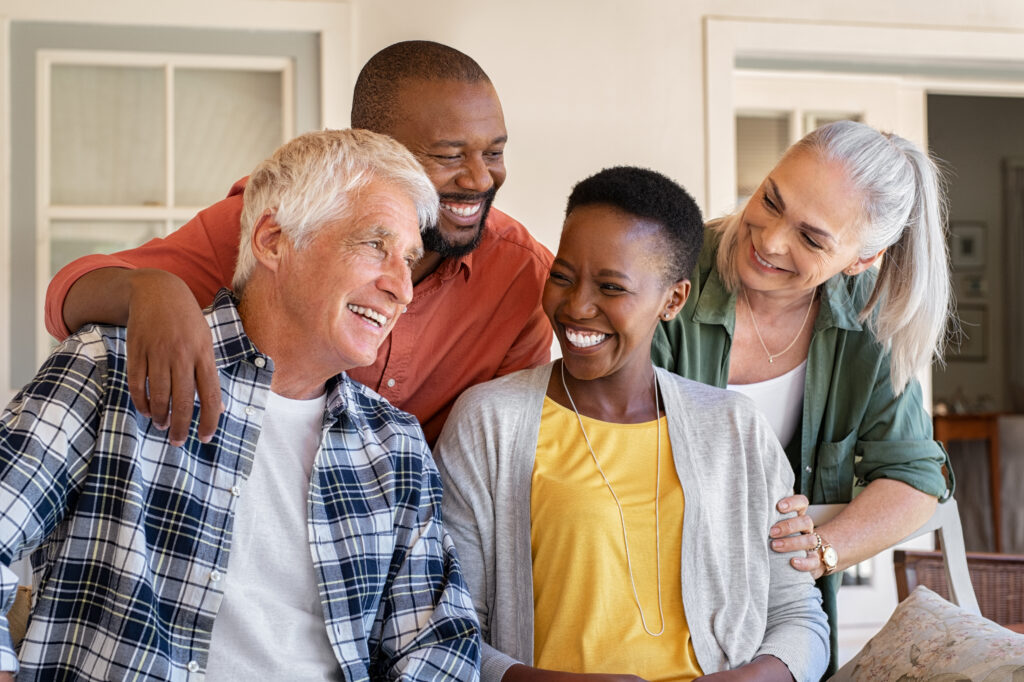Many of us aren’t used to asking for help. But we all need it at times. There are organisations and individuals out there who can provide the support you need.
Medical support
Mostly your medical needs will be sorted out through the hospital. But if they change once you’re home – for instance, if you become less mobile – you can always contact your GP surgery. They can arrange for a district nurse if you need one. Or for a community physiotherapy or occupational therapist to visit you at home.
An occupational therapist can advise on changes you can make at home that will make life easier. This can be as simple as blocks to raise an armchair and make it easier to get up.
If you have troublesome cancer symptoms or side effects, a community symptom control nurse may be helpful. You may know this as Macmillan nursing. But they’re actually employed by the NHS and can help people with cancer symptoms at any stage, not just end of life.
Practical help
There are a number of sources of practical help. What’s available will vary depending on where you live. Social services may be able to organise help in the home, or home care assistants for help with washing and dressing.
There may be local good neighbourhood schemes that can help with shopping, dog walking, giving lifts, or sitting with someone if you’re a carer and have to go out. You may be able to find out about these through your local library.
Age UK run good neighbour services in some parts of the country. They also have ‘handyperson’ services if you need a small job doing at home.
The Royal Voluntary Service has a directory of voluntary support schemes around the UK. You just put in your postcode.
Your local cancer support group may also have information about services in your area.
The NHS website has a useful list of charity helpline numbers you can call to talk through the help you may need and where to find it.
Helplines, support groups and people to talk to
There’s probably someone you usually talk to about the most important or difficult things in life. This may be a relative or friend. Or it may be a religious leader or someone else outside your immediate circle. Sometimes it helps to talk to someone who can be more objective. Or you may not want to talk about upsetting subjects with those closest to you.
Through cancer support groups, you should be able to meet others who know what it’s like to go through diagnosis and treatment. If you’re comfortable online, there are now many forums for people with cancer. With a rarer cancer, this can be a much easier way to find people with the same cancer type as you. The British Liver Trust online peer support forum has thousands of members, including people living with liver cancer.
Talking to people in the British Liver Trust liver cancer support group was really good. I felt that I was with people who understood – and I could talk openly in a safe space about what was happening to me.”
There are also helplines staffed by people with training and experience in supporting people with cancer.
The BLT helpline is staffed by nurses who specialise in liver disease and liver cancer. They can help explain and talk through what’s happening with your cancer and treatment. Whatever you’re going through, they’re there to listen.
Macmillan have a UK-wide cancer support group directory on their website.
If you feel you need more specialist support, there is info on our mental wellbeing page about ‘talking therapies’ that may help, such as counselling or cognitive behavioural therapy (CBT).
For families and friends
If someone close to you has cancer, you may also need some support. If you’re a carer, you need to make sure you look after yourself too. You won’t be able to help your loved one if you get burnt out yourself. If there are other family members and friends around, do ask them to pitch in as needed. Regular breaks will help you to cope as well as possible.
Many of the services included on this page will also provide help for you. Social services can carry out a carer’s assessment to help with practical support or claiming carer’s allowance if you’re eligible.
Liver cancers are relatively rare, so you may not have come across them before. It can all be difficult to understand. It may help to read our information on the particular type of liver cancer your loved one has.
Cancer helplines are very used to talking to relatives and friends. They can help you to make sense of what’s going on, as well as providing a much needed listening ear.
If you’re having difficulty coping emotionally with your loved one’s cancer, do speak to your GP about counselling. There is more info on our mental wellbeing page.
More information for family, friends and carers can be found on the British Liver Trust website.
Content last reviewed: October 2022
Next review date: October 2025

